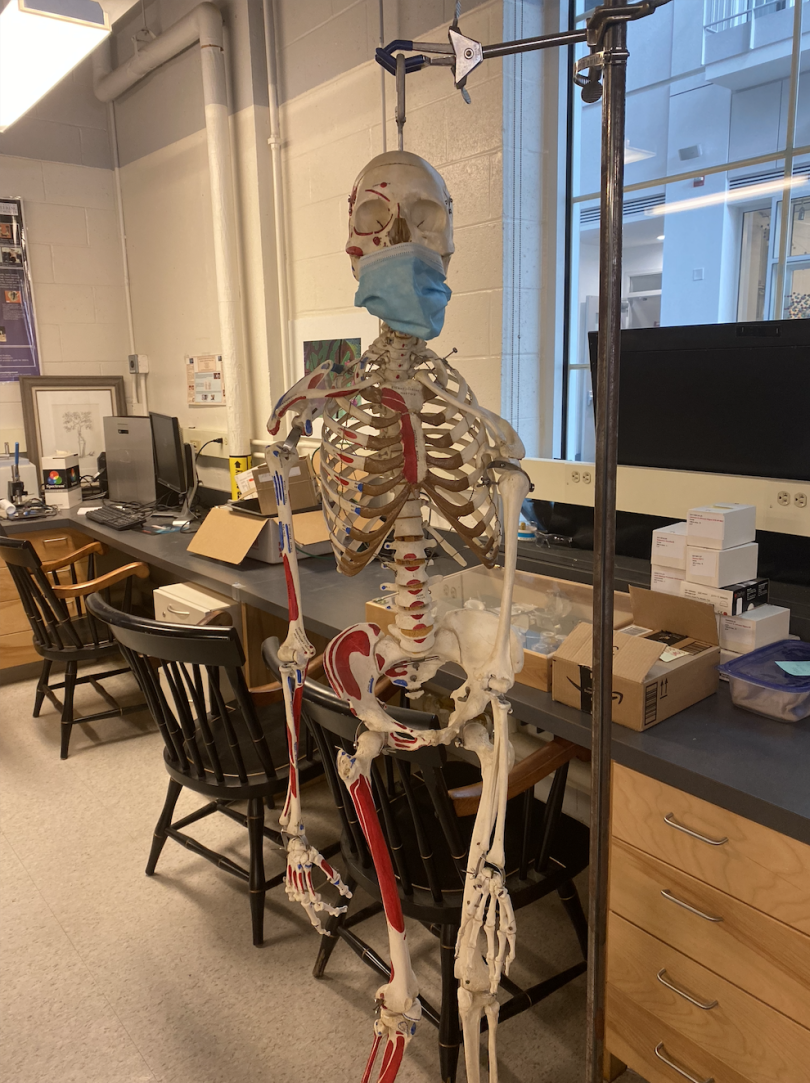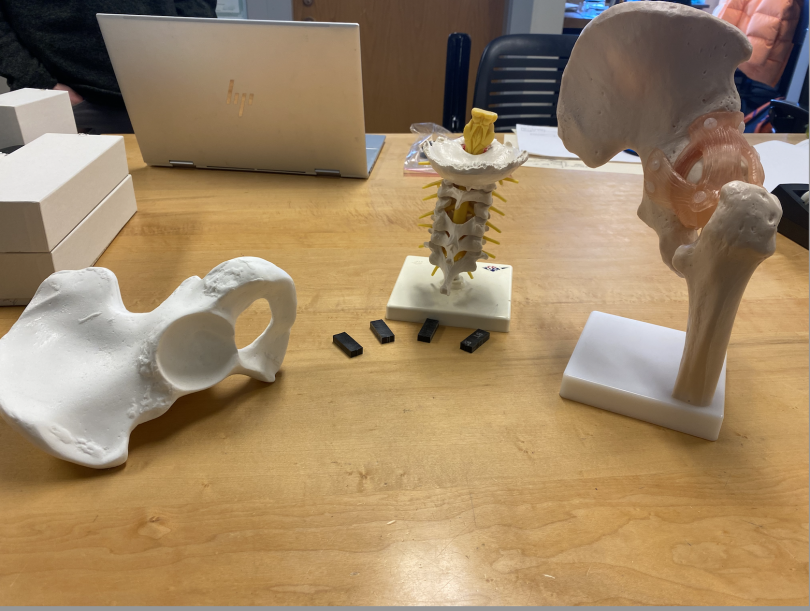

Andrea Agola


Mid-term Check-in: My WISP Research Experience
If you remember from my winter term preview, this term (and spring term!) I am doing research in the Dartmouth Biomedical Engineering Center for Orthopaedics as a WISP (Women in Science Project) intern! WISP is a great program that matches undergraduate women with faculty mentors in paid, part-time research internships in science, technology, engineering, and mathematics (STEM) disciplines. WISP internships provide early hands-on research experience in labs all across campus and at the Dartmouth Hitchcock Medical Center. There is also access to mentoring from peers, research scientists and faculty members. After a period of contacting different professors/labs, participating in interviews, and ranking my preferred labs during fall term, I have been so grateful that I matched with Professor Doug Van Citters' lab focusing on joint (knee, hip, shoulder) implant research.
Over the last few weeks, I have already gained so much knowledge. I'm now more aware about biomaterials and biocompatibility in orthopaedic practice. I've done readings and experiments on things like wettability, mechanical properties, infection from biofilms, and an important compound with a long name that I can proudly say I've memorized now–ultra high molecular weight polyethylene (UHMWPE). I've also been trained on machinery like the instron machine, scanning electron microscope, and Keyence imaging machine. While I was mostly working on imaging this last week, next week I will be frequenting the MShop–Dartmouth's machine and makerspace workshop–more.

Just recently, I listened to a project presentation put on by researchers in the lab. Most are graduate students who get the chance to mentor us WISP interns in a project. After getting the chance to hear about a handful of the many interesting projects going on in the lab, I matched with one of the graduate student researchers for a project focusing on Carbon-UHMWPE Impact Testing and Fractography. Now that I have picked a project, my schedule is a bit more fixed as I come into the lab for 2 hours almost every weekday.
Going forward, I am working on streamlining my research focus and creating an experimental design. Because of the initial two-term nature of this internship, I will present a project progress report towards the end of this term and then I will present a poster on my work and findings at the Karen E. Wetterhahn Science Symposium in May of spring term. This symposium will be an amazing opportunity, as my PI (principal investigator) Doug Van Citters explained how an important audience including people like the vice president of a big biomaterial production company will be eagerly waiting to hear from a specialized key informant–aka me!

Posts You Might Like

My experience in my first ever literature class!


I've just finished my first four weeks as a Concord Monitor news intern, having delved into journalism in ways I couldn't have without the help I received from Dartmouth's Center for Professional Development.


All about Writing 5 (and my favorite watches from the course materials!)


During my sophomore spring quarter, I took on the challenge of four STEM courses, and while it has been intense, the unexpected connections across subjects and the joy of learning have made it one of my most rewarding academic experiences yet.


Hello finals week! As I close out a finals season, dive into my bag to see just what gets me through this time of the term!


Recently, I spent the 4th of July in the nation's capital, Washington, D.C. (where I am working as a Rockefeller Center First-Year Fellow), and it was amazing!


On the Beijing LSA+, we have real-world Chinese practice every Friday. Last week we went to two neighborhoods, Houhai and Shichahai, and wrote a photo log about our experience. Read along to see what immersive language learning here looks like!


Curious about what a class looks like on a Dartmouth Foreign Study program? Read on!


With so many undergraduates hoping to participate in the exceptional atmosphere of the Tuck School of Business, Tuck created programs specifically designed for us. I was fortunate enough to take part in one of them: TuckLAB Entrepreneurship.
